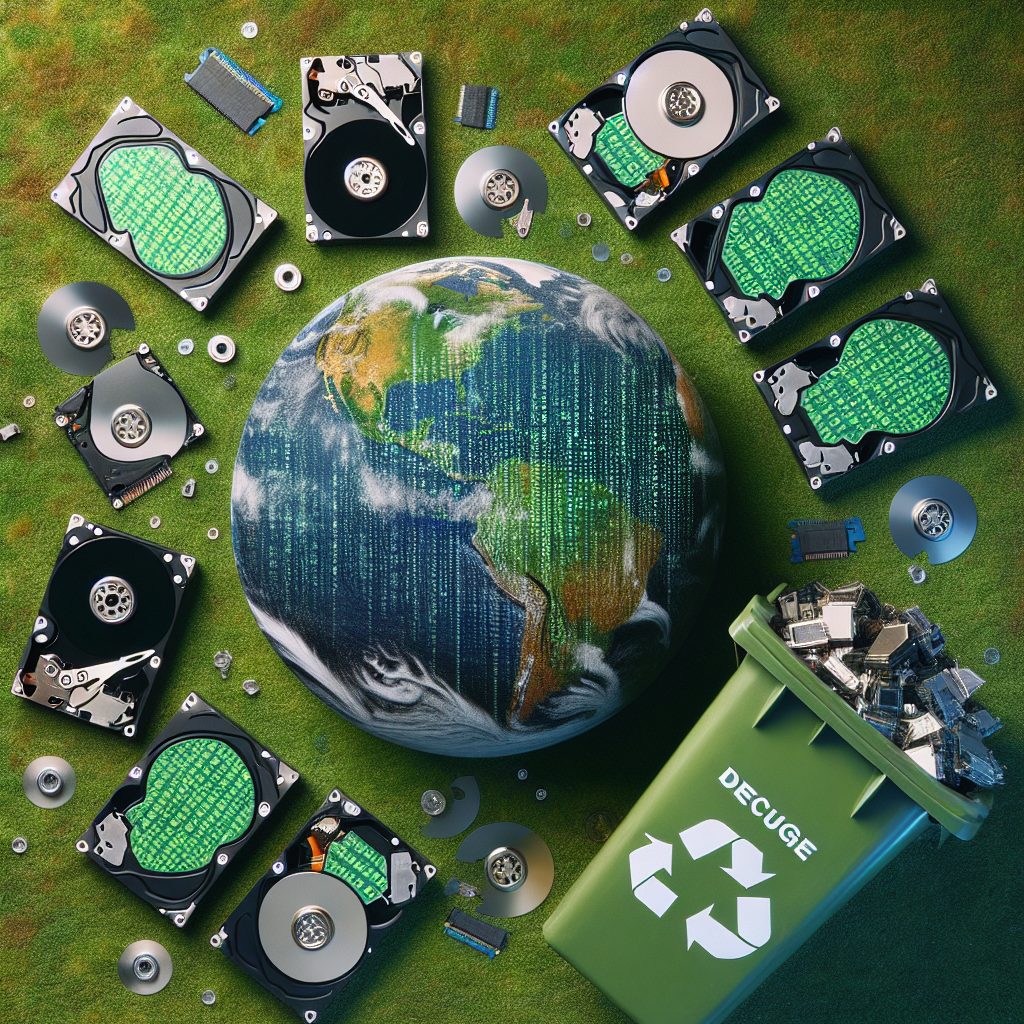In today’s digital age, the demand for data storage continues to grow exponentially. With the rise of cloud computing, online streaming, and the Internet of Things, the need for disk drives has never been greater. However, as the use of disk drives increases, so too does the environmental impact associated with their production, use, and disposal.
Disk drives, also known as hard disk drives (HDDs) or solid-state drives (SSDs), are essential components in computers and other electronic devices. They store and retrieve digital data using rotating disks or flash memory chips. While disk drives are crucial for storing and accessing vast amounts of information, they also have a significant environmental footprint.
One of the primary environmental concerns associated with disk drives is their energy consumption. Disk drives require electricity to operate, and as the demand for data storage increases, so too does the energy needed to power these devices. This can contribute to greenhouse gas emissions and climate change. In addition, the manufacturing process for disk drives requires the extraction of raw materials, such as metals and plastics, which can have a negative impact on the environment.
Another environmental issue related to disk drives is the disposal of these devices at the end of their life cycle. Many disk drives contain hazardous materials, such as lead, mercury, and cadmium, which can leach into the soil and water if not properly disposed of. Additionally, the e-waste generated from discarded disk drives can contribute to landfill pollution and harm human health.
To address the environmental impact of disk drives, manufacturers and consumers can take steps to promote sustainability and recycling. One way to reduce the environmental impact of disk drives is to increase the efficiency of data storage systems. This can be achieved through data deduplication, compression, and other storage optimization techniques that can help minimize the amount of storage space needed.
Additionally, manufacturers can improve the sustainability of disk drives by using recycled materials in their production processes and designing products that are more energy-efficient. Some companies are also exploring alternative materials, such as biodegradable plastics, to reduce the environmental impact of disk drives.
To address the issue of e-waste, consumers can participate in electronics recycling programs that allow them to dispose of old disk drives and other electronic devices in an environmentally responsible manner. Many electronics retailers and manufacturers offer take-back programs that allow consumers to return their old devices for recycling.
In conclusion, the environmental impact of disk drives is a growing concern as the demand for data storage continues to rise. By promoting sustainability and recycling practices, manufacturers and consumers can help mitigate the environmental impact of disk drives and work towards a more environmentally friendly future.


Leave a Reply